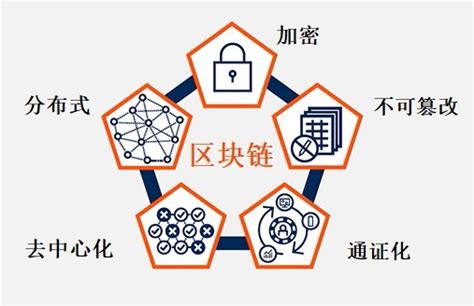区块链是一种什么的技术
Title: Exploring the Potential of Blockchain Technology in Various Industries
Blockchain technology, initially devised for supporting cryptocurrencies like Bitcoin, has transcended its original purpose and is revolutionizing various industries. At its core, blockchain is a decentralized, distributed ledger that records transactions across multiple computers in a way that ensures security, transparency, and immutability.

In the finance and banking sector, blockchain is streamlining operations by enabling faster and more secure crossborder transactions. Smart contracts, selfexecuting contracts with the terms of the agreement directly written into code, are automating processes such as loan issuance and trade settlements, reducing the need for intermediaries and minimizing the risk of fraud.
Blockchain's transparent and tamperproof nature makes it invaluable in supply chain management. By recording every transaction and movement of goods on the blockchain, companies can trace the journey of products from raw material suppliers to end consumers, ensuring authenticity, reducing counterfeiting, and enhancing trust among stakeholders.
In the healthcare industry, blockchain is revolutionizing data management and patient care. Electronic health records stored on blockchain platforms ensure the integrity and confidentiality of patient data while facilitating secure sharing among healthcare providers. Additionally, blockchainenabled supply chain solutions are helping to combat counterfeit drugs and ensure the authenticity of pharmaceutical products.
Real estate transactions are often complex and prone to fraud. Blockchain technology offers solutions by providing transparent and immutable records of property ownership, transactions, and contracts. Smart contracts automate processes such as property transfers, escrow services, and rental agreements, reducing paperwork, minimizing errors, and speeding up transactions.
In the energy sector, blockchain is facilitating the transition to decentralized energy systems. Through blockchainenabled platforms, energy producers can trade excess energy directly with consumers, bypassing traditional energy suppliers and reducing costs. Smart grid solutions powered by blockchain optimize energy distribution, enhance grid stability, and promote renewable energy adoption.
While blockchain technology holds immense promise, its widespread adoption faces several challenges. Scalability, interoperability, regulatory compliance, and cybersecurity concerns are among the key considerations that businesses must address. Additionally, educating stakeholders about the benefits and potential risks of blockchain adoption is crucial for successful implementation.
Blockchain technology is reshaping industries by improving efficiency, transparency, and security across various sectors. To unlock its full potential, businesses must carefully evaluate use cases, collaborate with industry peers, and invest in robust infrastructure and talent. With strategic planning and prudent implementation, blockchain has the potential to drive significant value creation and innovation in the global economy.











